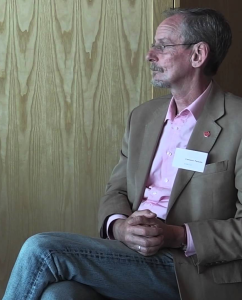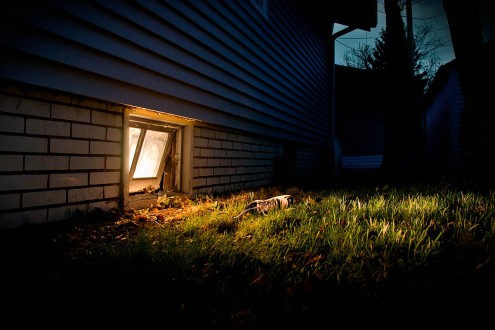| Online: | |
| Visits: | |
| Stories: |
The Prison and the Key: Why I Write About Shame
By Adam J. Pearson
The Wisdom of Eamonn Perkins
Eamonn Perkins is a wise, humble and tremendously compassionate teacher from Ireland who spends much of his time working with addicts and prisoners. He’s so low-key that, as of this writing, he doesn’t even have a website. In a 2014 interview, Eamann said something brilliantly concise and and equally incisive:
“If you truly knew me, you wouldn’t like me,” that’s the mantra of human existence. “
I love this. It’s so simple and so profound. It’s one of those lines that we hear and feel momentarily stunned into silence. Words like these hit home somewhere deep within us and resonate with something in the darkness that wants to be seen, a truth yearning to emerge into the light. And I couldn’t agree more with the truth of the statement, especially in our current global situation in which we have so much information and yet feel so paradoxically lost, are so socially connected and yet so lonely, and are so encouraged to puff up our ego and yet so inwardly drowning in a sea of shame.
And if shame–the intensely painful feeling that we are in some way flawed or not good enough and are, therefore, unworthy of love, belonging and connection–is the cause of our drowning, then it’s no surprise that we’re all desperately searching for a lifeline out of it.
“If you truly knew me, you wouldn’t like me” is the secret belief, the shameful idea, the “mantra of human existence.”
When we believe this story, we meet each other with fear and put up fronts and facades. We operate out of shame and hide out of reflex. We refuse to let ourselves really show up and be seen out of fear of judgment and rejection. And slowly and very quietly, this message, which is the voice of shame within us, begins to stifle life. Without understanding, we watch it happen, wishing we had the words to describe what was going on and the tools to handle it.
As if paralyzed, we watch shame crush our free expression. The fear at its core blocks our creativity. Shame replaces honesty with self-defensive lies. It makes us scramble for escapes and distractions to avoid the excruciating pain that is fundamental to shame. And while saying that we would never want to be anything but authentic, we find ourselves so afraid to be real and not belong that we choose instead to be inauthentic to fit in.

Shame is Widespread
This pattern is so common and yet so unspoken. “The less you talk about shame, the more you have it,” says the brilliant and inspiring shame researcher Brene Brown in her renowned TED talk, “The Power of Vulnerability.” “The only people who don’t have it also have no capacity for human empathy or connection.” Shame is incredibly universal. I’ve seen it in the students I’ve taught. I’ve seen it in the men and women I know. I’ve see it in my friends. I’ve see it expressed in the media on TV. And I’ve seen it in myself. For 25 years of my life, it stifled me and held me down like a heavy and unspoken weight that I had no words to express. I feel for and with all of those who struggle with shame because I get them.
That’s why I’m open about shame. And when I do openly talk to people about it, I tend to hear the same thing over and over again: “I thought it was just me…” Oh yeah. I know that feeling. Shame is tremendously good at making us feel like we’re the only ones who feel it, when the truth is that it comes up in nearly all of us.

Shame Itself is Fear, Our Prison and the Key to Freedom
Facing shame can sometimes feel terrifying because shame itself is fear, the fear of not being enough and being unworthy, unlovable, and rejected as a result. The basic truth, as I see it, though, is this: if we want to flourish, if we want to be boldly authentic, if we want to truly love, if we want to transcend fear, if we want to cultivate kindness and forgiveness, if we want to find peace, we need to face shame rather than deny, repress, and project it. We need to meet it in an intelligent and self-compassionate way that works.
And that’s why I spend so much time and so many words writing about shame. Because it’s the substance out of which we forged the bars of our internal prison. And it’s also the key to our liberation.
***

Resources on Shame and Cultivating Shame-Resilience
If anything I said above resonates, rings true, or sounds familiar to what you’ve felt, here are some resources about shame that I’ve found helpful.
- Above all, I’d recommend reading he amazing book “Daring Greatly: How the Courage to Be Vulnerable Transforms the Way we Live, Love, Parent and Lead” by the shame-researcher and brilliantly compassionate and inspiring Brene Brown.
This book literally changed my life. It gave me words for feelings I had felt for years and had never been able to express. It cast light on powerful shadows. I’ve read it 3 times. It’s that good. It literally changed my life.

- Here’s a wonderful Positive Psychology article on Brene Brown’s “Shame-Resilience Theory” if you’re into a more psychology-oriented academic approach.
If you want some down-to-Earth distillations of the core principles from Brene’s book as I’ve applied them in my life, here are a few articles that I’ve written on the subject of shame and empowering ourselves with resilience against it. These articles are grounded in both solid research and in my own experience and practice, not hypothetical theories. My general rule is that I only write about tools I’ve actually used and found helpful in my own life.
However, don’t take my word for it. Let your own experience be the laboratory and the judge. I’m right there in the arena with you, facing the same issues. We’re in this together and we’re never alone, even though shame can make us feel that way and there are useful strategies that work to empower us to work with these things.
Here’s a brief guide to what the articles cover:

- “Silencing the Praise: Why Seeking Approval Fails to Fill Our Inner Void” introduces shame and identifies it as the name of the void we feel within us, the void that says we are “not good enough” and are thus unworthy of love and belonging. It then explains why approval-seeking fails to fill the void of shame because shame invalidates approval even when we do receive it. We are not hopeless, however; at the end of the article, I introduce a few healthy alternatives and powerful strategies to meet shame with resilience and compassion.
- “The Heart of the Void: Finding the Assumptions at the Heart of Shame” breaks shame down into two key parts: a feeling part and a thinking part. The feeling part involves the emotions at the heart of shame (e.g. fear, anxiety, pain) and the thinking part involves the core assumptions about ourselves that are at the root of the feelings. This article specifically explains how to discover these assumptions and then how to reality-check and transform them once we do find them. This practice is a powerful tool for our shame-resilience arsenal.
- “Finding the Calm Within the Storm: Shame-Resilience in Practice” breaks down Brene Brown’s powerful shame-resilience method into clear steps and gives a real-world example of how I applied it to one shame story in my own life. I’ve seen tons of articles about the method online but very few concrete examples of how we apply it in our own inner experience. This article was written in an attempt to fill that void and also to practice “the courage to be vulnerable” that Brene Brown champions.
- “Forgive and Be Free: The Liberating Power of Forgiveness” offers a useful practice for compassionately addressing the feeling part of shame through forgiveness. Forgiveness was something I took for granted for a long time because I didn’t realize how simple, yet powerful it truly is. However, it was a key part of this puzzle for me.
- “Release the Past to Free the Present: Another Meaning of Forgiveness” expands on the previous article to explain how forgiveness helps us lovingly liberate our present from the stranglehold of the past. Since shame is powerfully rooted in our past thoughts, perceptions, and experiences, forgiveness thus is a powerfully compassionate practice for skillfully handling shame. This article explains how this works.
Read More from Adam Pearson at http://philosophadam.wordpress.com/
Source: https://philosophadam.wordpress.com/2015/02/03/the-prison-and-the-key-why-i-write-about-shame/










